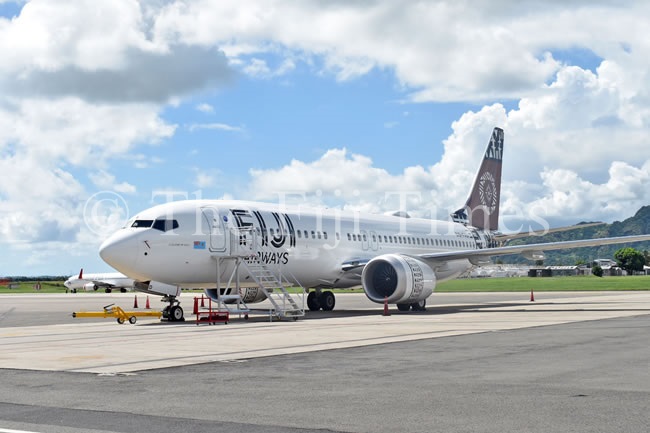An airline and an airport are two different businesses. They run quite separately from each other with their roles being very different, albeit within the same industry, aviation, where the combined purpose is to provide safe and comfortable access for a passenger experience.
An airport company has the responsibility to manage and regulate those who use its services. In Fiji’s case, Airports Fiji Ltd, or Fiji Airports, is a Government commercial company.
It is managed like a private company, but administers statutory responsibilities for aviation, some of them regulated by international conventions.
The decision and announcement by the Fiji Government to hand over the management of Fiji’s airports to the national airline, Fiji Airways, is concerning and raises red flags.
Both entities have different objectives to serve the travelling public and Fiji. I have worked for both the airline and airport at different parts of my working life and I know the objectives of the two companies are very different.
An airline provides seats from a point of departure to a point of destination and the services that go with them, from purchasing a fare to landing at destination.
That is the experience that the airline sells to gain its revenue. An airport’s objective is both aeronautical and non-aeronautical, with air traffic management being its primary business – to provide flight and aircraft safety within the ambits of its designated airspace and its other mandatory services of fire and security.
Non-aeronautical services should ensure a passenger experience of efficient facilitation in and out of its bases of operations.
Obviously neither can survive without the other – their common product is travelling passengers.
However, the conflicting interests between airlines and airports are widely acknowledged globally. As much as the airlines and airports need each other, many requirements reflecting conflicting needs.
The demarcation of roles itself between an airline and an airport invite debate and negotiation. Some experts call it a “love/hate relationship”.
There are good reasons why airlines and the airports around the world remain separate entities.
World trade agreement principles require that countries commit to open trade and open services markets. Treaties that govern airspace regulations which Fiji has signed, offer these advantages globally and mandate fair business environments for airlines and private parties to freely access competitive airport and air navigation market rates.
All over the world airlines have purchased or leased airport space with airport operators where the airline then brands these spaces for their purposes.
This was also true in Fiji, but from my experience in both companies, some of these arrangements did not eventuate for various reasons including conflicting objectives of the two entities.
In Fiji’s case, where the national airline has been tasked to manage Fiji’s airports, the Government is technically handing over a cash cow (the airports) to a heavily indebted airline to manage.
This action has its commercial dangers.
Take for example slot management, which involves giving aircraft specific parking points at specific times to manage their arrivals and departures.
Any airport should work independent of its national airline when managing airport slots for its airport operations.
This allows rules of fair trading to turn and provide competitive bidding to all airlines operating into an airport. In turn this will churn the wheels for healthy competition between operating airlines where ultimately passengers access cheaper airfares for flights.
Specifically, for Fiji, airlines other than Fiji Airways use its Nadi and Suva international airport facilities, while domestically Northern Air and privatelyowned charters compete with Fiji Link.
With Fiji Airways managing Fiji’s airports, it could have an unfair advantage over other airlines because it will have inside knowledge of the airport’s operations and costs.
Another area is air navigation and landing fee revenue for many airports. This is where airports make aeronautical revenue. With management of the airport left to Fiji Airways, who is to know if this revenue will now be fairly charged between one airline and another?
Fiji Airways has received substantial public financial support during post-COVID budgets from the present Bainimarama government.
Yet it has not made its annual accounts public since 2009. More recently Fiji Airways has been under scrutiny for the issue of shares to FNPF.
These actions have led to questions about the management of this once thriving airline. The new management agreement will certainly invite raised eyebrows.
To manage the airport, Fiji Airways management will have to deal with competitor airlines, some owned by foreign Governments, only deepening the challenges many face in their post-COVID operations.
In his budget address, the Attorney-General said: “Fiji Airways management mandate will be to step up airport infrastructure nationwide, meaning to upgrade our existing airports and build new ones.
Starting in Nadi, they will upgrade the baggage handling and air site infrastructure and enhance the arrival experience, improve customer amenities at Nausori airport and review our outer island facilities, including Labasa and Savusavu with an eye for major capital development opportunities.”
As airport users Fiji Airways and its management are part of the facilitation committee that collectively decides with airport authorities how and when to carry out airport works. This is not an airline function, but an airport-mandated one.
The work the Attorney-General is talking about has blurred the lines between the two operations and sets a dangerous precedent of overstepping boundaries set by international standards and practice.
To my knowledge in no other country does an airline manage a government-owned airport company.
• LAVINIA KAUMAITOTOYA is an announced election candidate for The People’s Alliance. She has held management positions at Pacific Farmers Organisation (PIFON), the Fiji Crops and Livestock Council, Airports Fiji Ltd, Fiji Ports Corporation Ltd and Fiji Airways. The views expressed in this article are not necessarily the views of this newspaper.



